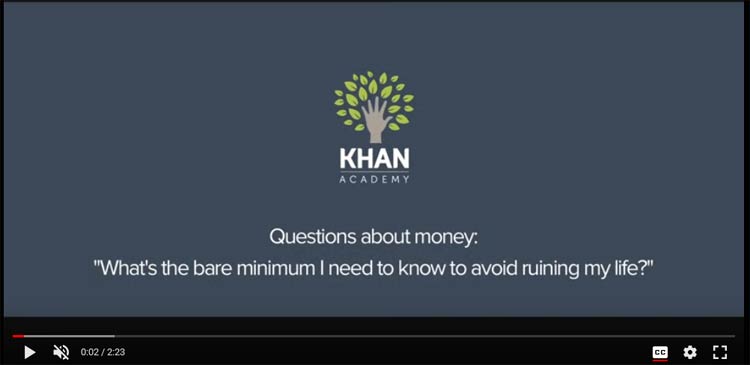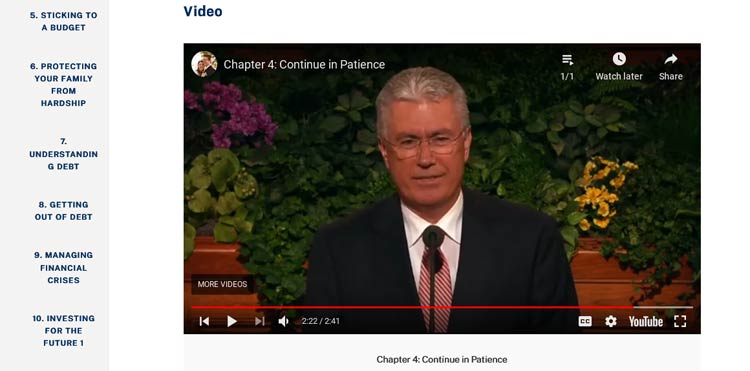
Did you know that nearly two-thirds of Americans live paycheck to paycheck? It’s not surprising, given that finances can be tricky. Learning how to manage your money effectively and efficiently is challenging, but also necessary. Fortunately, there are ways to improve your financial literacy without diving into complex textbooks full of formulas and jargon. Instead, you can take online courses to learn more about budgeting and the importance of a solid financial future. These budgeting courses are available online whether or not you have a degree. Let’s take a look at some online courses that will help you understand the ins and outs of budgeting as well as other financial planning topics.
Is budgeting hard to learn and understand?
There are many reasons why learning how to effectively maintain a budget is difficult for people. From my personal experiences, I know it’s one of the hardest things to learn and maintain. Most of us struggle with it at some point in our lives, even those who have an understanding of personal finance. Having a personal finance education doesn’t necessarily mean we will be successful at implementing principles in real life.
Consequently, budgeting is difficult because most people do not have support from others and access to resources that make it easier to implement on a daily or monthly basis. Even though there are free tools and apps you can use to track your spending, most people don’t take advantage of them. And while there are books and courses available on personal finance, they are not as accessible as other interests like video games or fashion trends.
There are many courses on budgeting. You can find these courses online, in libraries, and even in community centers. The key is to find one that fits your needs and learning style.

Some free courses on budgeting may be more comprehensive than others. They may cover topics such as creating a budget, sticking to a budget, and saving money. Others may be more focused on a specific aspect of budgeting, such as investing or credit management.
It is important to read the descriptions of each course before enrolling to make sure it is a good fit for you. There are also many helpful budgeting resources available online and in print.
Are there any free courses on budgeting?
When it comes to finding a good and free budgeting course, there are definitely some challenges. However, with a little bit of research and perseverance, it is possible to find a quality course that won’t cost you anything.
One approach is to look for online courses offered by well-known and reputable financial institutions or organizations. For example, the website Khan Academy offers a variety of free courses on topics like budgeting and personal finance. Alternatively, there are also many websites that provide free budgeting courses specifically.
Another option is to search for free budgeting courses offered by colleges and universities. Many schools offer non-credit personal finance courses that are open to the public. These courses can be a great way to learn about budgeting without having to pay for tuition.
Of course, it’s also worth considering other resources like budgeting books or articles. While these may not be as comprehensive as a course, they can still provide helpful information and tips on budgeting.
Another example is Coursera, which offers a free course for Personal & Family Financial Planning in which you can enroll right now, but I’m not sure how long it will stay free.
Practical Money Skills – this site offers a free online course called “Budgeting 101” that covers topics like creating a budget, tracking expenses, and saving money.
Personal Finance Courses – Brigham Young University – BYU provides a wide range of online financial classes at the beginner, intermediate, and advanced levels. All of the classes are free. Brigham Young University is affiliated with the Church of Jesus Christ of Latter-day Saints—commonly known as the Mormon church—and personal finance classes may include faith-based principles. Personal finance classes at the beginner level discuss budgeting, debt, and investments, while more advanced courses concentrate on retirement planning and sophisticated investing.
The problem with these free courses is that they may be free now, but they won’t probably be free forever. Free courses appear online all the time but they disappear even faster. In the end, it may take some time and effort to find a good and free budgeting course. However, it is possible to find quality resources that won’t cost you anything. With a little bit of research, you should be able to find what you’re looking for.
Youtube can be a great resource for free quality budgeting advice. There are many channels dedicated to personal finance and budgeting, and they can be a great way to learn about how to save money and make smart financial decisions. Some of our favorite channels for budgeting advice include The Dave Ramsey Show, The Motley Fool, and Money Girl.
What are the most reputable budgeting courses and online classes?
- Dave Ramsey’s Financial Peace University: This course is designed to help you get out of debt and build wealth. It includes video lessons, financial tools, and group support. This is a comprehensive course that covers everything from creating a budget to investing for retirement. It’s a great choice for those who want an all-in-one solution to their financial problems.
- Suze Orman’s Financial Freedom Course – this course is more focused on helping people get out of debt and build up their savings. It’s a good option for those who are struggling with credit card debt or other high-interest debts.
- Money Management International’s Budgeting Course – This course is designed to help you develop a spending plan and stick to it. It includes seven lessons on topics like setting financial goals, tracking your spending, and reducing your expenses.
- Udemy’s Budgeting Courses: This course is designed to help you understand the basics of personal finance and budgeting. It includes eight lectures on topics like income and expenses, debts and credit, and saving money.
- Money Coach University: This course is designed to help you take control of your finances and get out of debt. It includes video lessons, workbooks, and other resources to help you stay on track.
- Personal Finance – Purdue University – The subject matter of this course is how to make smarter financial decisions and manage your money. It covers time, the value of money, stock markets, investments, the proper usage of credit, how insurance works, how investments and credit interact, and why it’s critical to save for retirement as soon as possible.
Online courses and classes that help you use budgeting apps:
- How to Use Mint to Track Your Finances from Udemy. It is very thorough and explains things well. I like that it includes videos and articles to read as well as quizzes to test your knowledge. It is also nice that it is self-paced so you can go at your own speed. I would definitely recommend this course to anyone looking to get a better handle on their finances.https://www.udemy.com/course/how-to-use-mint-to-track-your-finances-and-control-spending/

- YANB Video Courses – they are a great way to learn about budgeting and how to use the YNAB software. There are a total of four courses, each of which is around 30 minutes long. The first course covers the basics of budgeting and introduces you to the YNAB software. The second course covers more advanced budgeting concepts and how to use the software to your advantage. The third course covers investing and how to use the YNAB software to help you reach your financial goals. The fourth and final course covers retirement planning and how to use the YNAB software to help you prepare for your future.

Final words:
There are some general things to keep in mind when considering whether online courses for personal budgeting are helpful.
First, consider what you hope to gain from taking a course. If you’re looking for specific advice or guidance on how to better manage your finances, then an online course could be a good option. However, if you’re simply looking for general information on budgeting, there are many other resources available that may be more helpful.
Second, consider the quality of the course. There are many free courses available online, but not all of them are created equal. Make sure to do your research to find a course that is well-reviewed and has been created by a reputable source.
Third, consider how much time you are willing to commit to the course. Some courses are very comprehensive and can take weeks or even months to complete. Others are shorter and can be completed in just a few hours. Consider how much time you have available and choose a course accordingly.
Finally, remember that everyone’s financial situation is different. What works for one person may not work for another. Be sure to take the time to tailor any advice you receive to your own unique circumstances.


